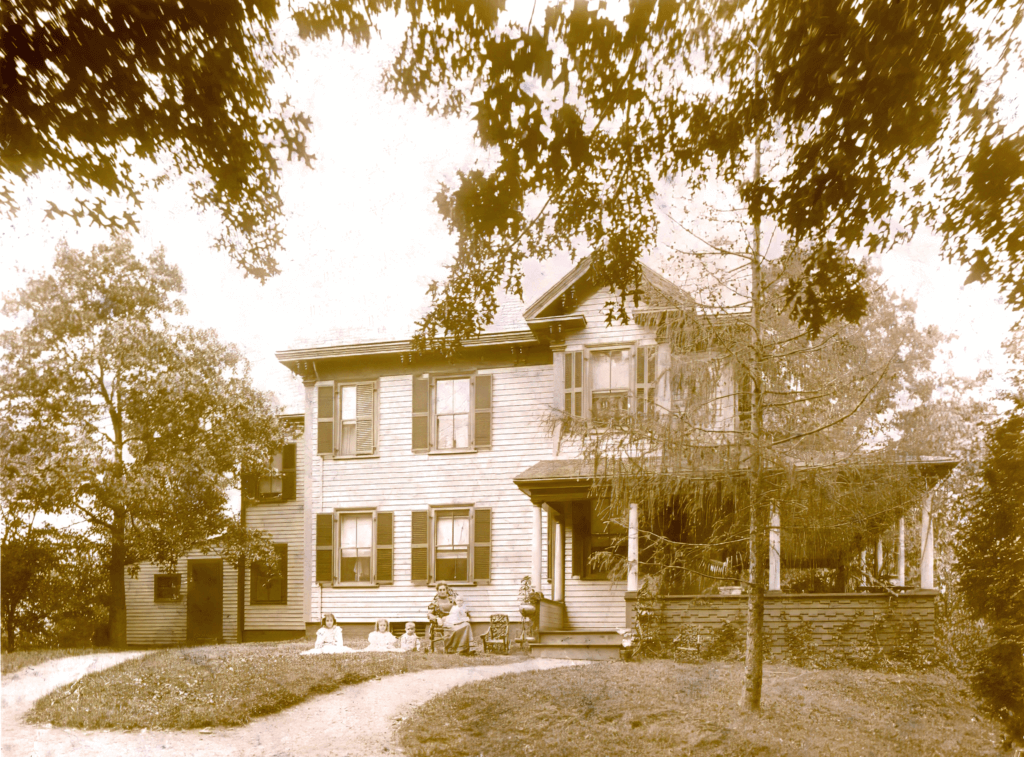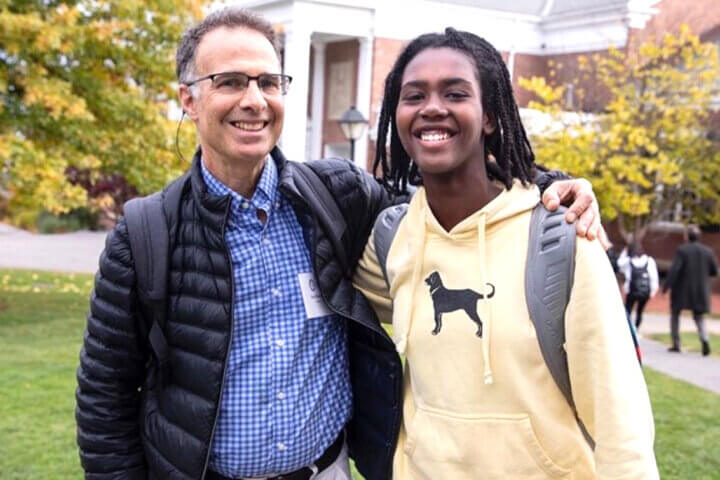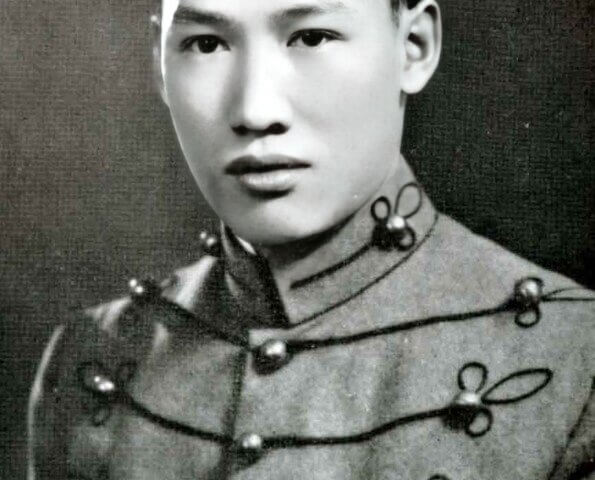By Anne O’Connor — Correspondent
In 1889, a young man from Boston’s North End married the daughter of an Acton family at St. Bernard’s Church in the center of Concord.
John Francis Fitzgerald, later known as “Honey Fitz” for his engaging ways, was well on his way to becoming an archetypal Irish American politician in Boston. He was forced to leave Harvard Medical School before completing his first year after his father, Cocky Tom, so called because he was cockeyed, died.
Knowing he had to provide enough money to hire a housekeeper and keep his younger brothers going and aware that it’s not always what you know, but who you know, he approached the ward leader for help.
In return for supporting party candidates in elections, the ward bosses took care of the throngs of Irish living in the crowded city with money and jobs.
Soon, the gregarious young man with a Boston Latin High School diploma was working his way up in ward politics in the largely Irish North End. He landed a job at the Customs House.
His bride, Mary Josephine “Josey” Hannon, a seamstress, was described as beautiful and reserved.
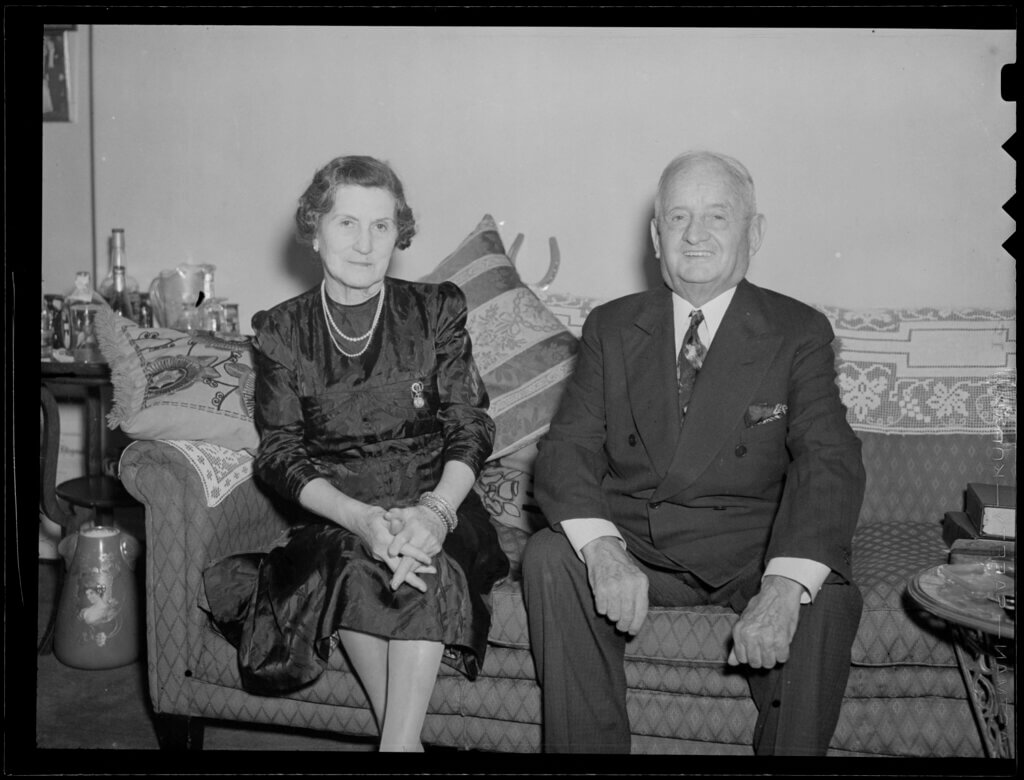
Courtesy of the Boston Public Library, Leslie Jones Collection
The second cousins were well acquainted. Fitzgerald visited the Acton farm as a youngster.
Concord played a big role in the couple’s courtship. They took long walks, visiting historic sites and canoeing on the river. Fitzgerald recited Ralph Waldo Emerson’s poetry to his love.
Life must have changed dramatically for the reticent farm girl when she joined her new husband and six of his brothers to live on Hanover Street after touring the White Mountains.
Within two months, Josey was pregnant. John and Josey moved to a nearby red brick home the family owned.
Their firstborn, Rose Elizabeth, named for her paternal grandmother and her mother’s sister who drowned as a young child, would become Irish Catholic royalty and the matriarch of a political clan still active a century later.
Despite moving to Boston, the family kept close ties with Concord and Acton.
In 1887, when Fitzgerald was a U.S. congressman, the family, now with three children, moved to Concord Junction, now West Concord, so that Josie could be closer to her family in Acton.
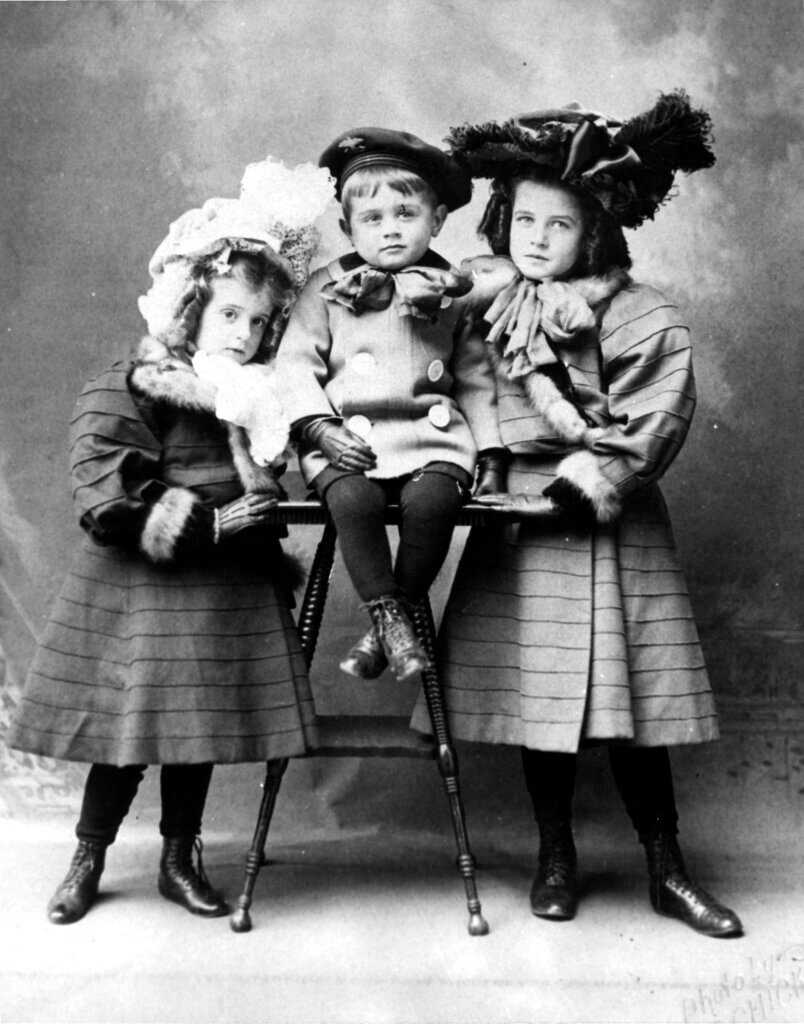
Kennedy Family Collection held in the Audiovisual Archives at the John F. Kennedy Presidential Library and Museum
Despite a directive of the archdiocese in Boston that Catholic children must attend Catholic schools, Rose attended West Concord Grammar School, just three blocks from the house.
Josie was a religious woman, drilling her children in their catechism and leading them in prayer at home. Sunday meant a horse and carriage ride to the center of Concord to attend Mass at St. Bernard’s.
Honey Fitz was not often in Concord, spending months at a time in Washington. For him, Rose said later, church was just as much a place to meet friends and constituents as it was a religious experience.
The family returned to Boston with an additional two children when Fitzgerald’s residence became a public issue. In 1910, he was elected the first U.S.-born Irish American mayor of Boston. Their home was on the market in 2022.
His grandson, Rose’s son, John Fitzgerald Kennedy, would become the first Irish Catholic president in the U.S. and, at 43, the youngest ever elected. He named his presidential yacht “Honey Fitz.”
Rose graduated from Dorchester High School. She went on to study in the Convent of the Sacred Heart in Boston despite being accepted at Wellesley College.
Education was important. Honey Fitz and Josie donated a grand piano to Acton High School when it opened in 1926. It was restored in 2008 and is now in the Acton Memorial Library.
Rose carried the lessons learned from her parents throughout her life.
She and her husband, Joseph Kennedy, obeyed the directive in Genesis: Be fruitful, multiply. They had nine children.
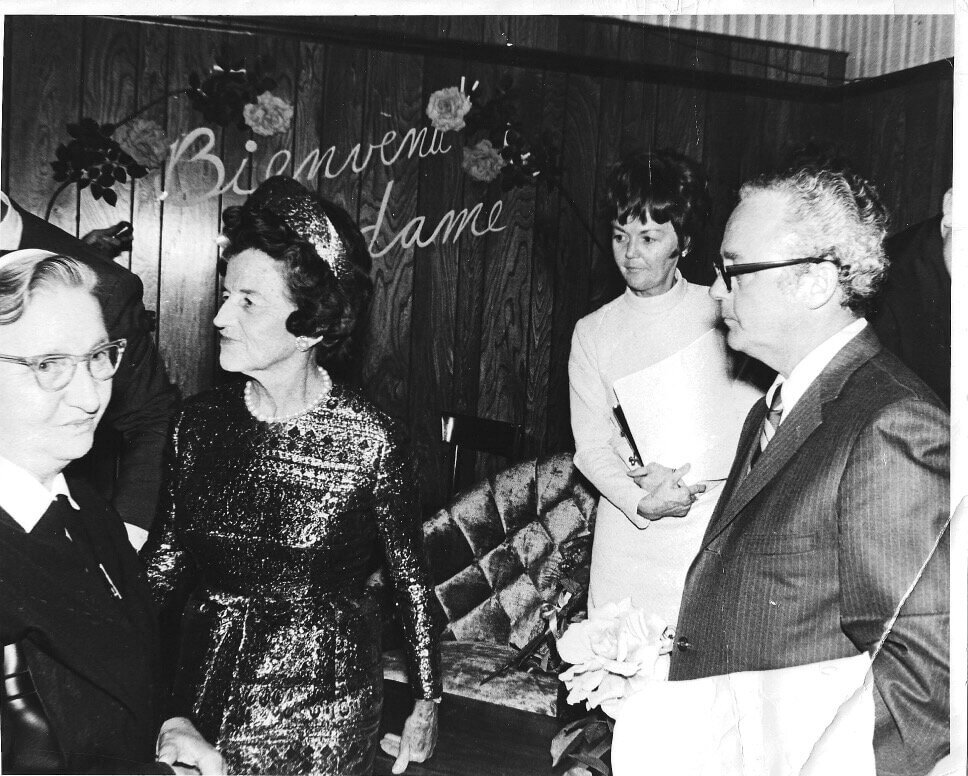
Blackwell family photo
Rose carried on her mother’s dedication to Catholicism. She and her husband attended the coronation of Pope Pius XII in 1939 and had a private audience with the Pope.
The Roman Catholic Church conferred the title of papal countess to her for her “exemplary motherhood and many charitable works” in 1951.
With the political astuteness learned at her father’s knee, she became a dedicated political campaigner for her sons.
When her son, John Fitzgerald Kennedy, ran in the 1960 presidential campaign, she reminisced about Concord in the draft of one of her speeches, excerpted by the JFK Library:
“Those were the days when we slept in feather beds & read to the lights of kerosene lamps, and got our milk in a 5 gallon tin can. But I was happy and contented, helping my grandmother in the garden & riding home proudly with my grandfather on a load of hay after the men had piled it high…in the old farm wagon drawn by the farm horse. I heard about the hardships, too, in those days…when the rains did not fall & vegetables were parched…and the other gray days when there were too many peas and beans in the market at one time and the prices would fall and the apples would lie rotting on the ground because it was not worth while to pick them…”
St. Bernard’s Church on Monument Square is still a Catholic church. It was built around 1841 by the Universalist Society, which ended services in 1850. The Archdiocese of Boston purchased the building in 1863. Since then, it has undergone major renovations, was moved closer to the common, and was turned 90 degrees to face the foot of Main Street.
“The Fitzgeralds and the Kennedys: An American Saga,” a 1987 book by Doris Kearns Goodwin, served as a source for much of this article.


